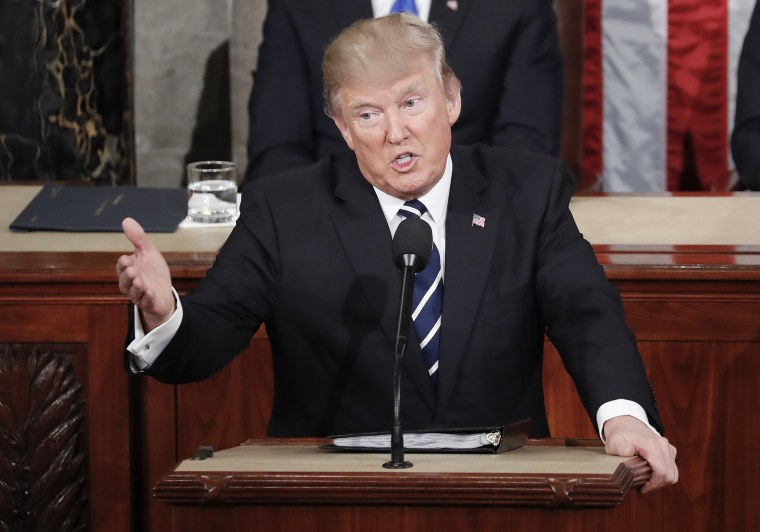In Republican circles, it's taken as a given that House of Representatives' impeachment process against Donald Trump was outrageously unfair. Identifying what, specifically, was so unfair about it, however, has proven to be more difficult.
As we recently discussed, the original GOP line was that the House impeachment process was unfair because there'd been no formal vote on the House floor to authorize the inquiry. After the House did, in fact, hold such a vote, Republicans shifted their focus, complaining that the process was unfair because there were no public impeachment committee hearings.
After the House did, in fact, hold extensive public impeachment committee hearings, Republicans shifted again, insisting that the process is unfair because Donald Trump and his team were not given an opportunity to present a defense. After House Democrats invited the president and his White House attorneys to participate in the impeachment inquiry, Team Trump refused to accept the offer.
And at that point, the president and his party said the impeachment process was unfair because ... well, just because.
Trump has occasionally tried to come up with some talking points, though the nature of his complaint came into focus yesterday when the president published a tweet quoting a conservative pundit he saw on Fox News:
"Look, the House is supposed to do all of this work on witnesses and documents BEFORE they send the articles over to the Senate, not to call in new witnesses, go through new documents - that work is supposed to be done in the House." @KatiePavlich @foxandfriends
This appears to be in reference to Democratic efforts to have senators hear testimony from key witnesses, including former National Security Adviser John Bolton and acting White House Chief of Staff Mick Mulvaney. The trouble is, the House tried to hear their testimony, but the president refused to let them cooperate.
The result is an exceedingly awkward pitch: Trump's argument against the House impeachment process is based in part on the fact that House lawmakers didn't talk to the witnesses Trump wouldn't let them talk to.
The president may find this persuasive, but there's no reason anyone else should.
Trump also argued via tweet this week, "Wouldn't it be reasonable to assume that Republicans in the Senate should handle the Impeachment Hoax in the exact same manner as Democrats in the House handled their recent partisan scam? Why would it be different for Republicans than it was for the Radical Left Democrats?"
For now, let's put aside the qualitative differences between how the process is supposed to unfold in the two chambers, including the fact the Senate, unlike the House, is responsible for holding a trial. Instead, let's focus on the fact that the Senate really should follow the House's lead when it comes to handling the impeachment question.
The House held weeks of hearings, offered ample time to the majority and minority, spoke directly to several leading White House and Trump administration officials, examined documentary evidence (emails, text messages, contemporaneous notes, etc.), set aside many hours for debate and deliberations, and published lengthy and well-researched reports on the core allegations, all of which was disclosed to the public.
If Senate Republicans handled the impeachment process "in the exact same manner as Democrats" in the House, wouldn't that be a good thing?
